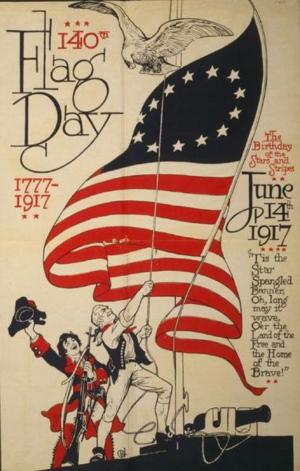The Kiss and its History
Nonfiction, Religion & Spirituality, New Age, History, Fiction & Literature| Author: | Kristoffer Nyrop | ISBN: | 9781465606730 |
| Publisher: | Library of Alexandria | Publication: | March 8, 2015 |
| Imprint: | Language: | English |
| Author: | Kristoffer Nyrop |
| ISBN: | 9781465606730 |
| Publisher: | Library of Alexandria |
| Publication: | March 8, 2015 |
| Imprint: | |
| Language: | English |
A kiss is produced by a kind of sucking movement of the muscles of the lips, accompanied by a weaker or louder sound. Thus, from a purely phonetic point of view, a kiss may be defined as an inspiratory bilabial sound, which English phoneticians call the lip-click, i.e., the sound made by smacking the lip. This movement of the muscles, however, is not of itself sufficient to produce a kiss, it being, as you know, employed by coachmen when they want to start their horses; but it becomes a kiss only when it is used as an expression of a certain feeling, and when the lips are pressed against, or simply come into contact with, a living creature or object. The sound which follows a kiss has been carefully investigated by the Austrian savant, W. von Kempelen, in his remarkable book entitled The Mechanism of Human Speech (Wien, 1791). He divides kisses into three sorts, according to their sound. First he treats of kisses proper, which he characterises as a freundschaftlich hellklatschender Herzenskuss (an affectionate, clear-ringing kiss coming from the heart); next he defines the more discreet, or, from an acoustic point of view, weaker kiss; and, lastly, speaks contemptuously of a third kind of kiss, which is designated an ekelhafter Schmatz (a loathsome smack). Many other writers have, although in a less scientific manner, sought to define and elucidate the sound that arises from a kiss. Johannes Jørgensen says very delicately in his Stemninger that "the splash of the waves against the pebbles of the beach is like the sound of long kisses." It is generally, however, an exclusively humorous or satirical aspect that is most conspicuous. In the Seducer's Diary(Forførerens dagbog) of Sören Kierkegaard, Johannes speaks of the engaged couples who used to assemble in numbers at his uncle's house: "Without interruption, the whole evenings through, one hears a sound as if a person was going round with a fly-flap: that is the lovers' kisses." A still more drastic comparison is found in the German expression, "the kiss sounded just like when a cow drags her hind hoof out of a swamp." This metaphor, which is used, you know, by Mark Twain, is as graphic as it is easy of comprehension; whereas, on the other hand, I am somewhat perplexed with regard to an old Danish expression that is to be found in the Ole Lade's Phrases (Fraser): "He kissed her so that it rang just as it does when one strikes the horns off felled cows." Another old author speaks of kissing that sounds as if one was pulling the horn out of an owl. The emotions expressed by this more or less noisy lip-sound are manifold and varying: burning love and affectionate friendship, exultant joy and profound grief, etc., etc.; consequently there must be many different sorts of kisses. The austere old Rabbis only recognised three kinds of kisses, viz.: those of greeting, farewell, and respect. The Romans had also three kinds, but their classification was essentially at variance with the Rabbis': they distinguished between oscula, friendly kisses, basia, kisses of love, and suavia, passionate kisses.
A kiss is produced by a kind of sucking movement of the muscles of the lips, accompanied by a weaker or louder sound. Thus, from a purely phonetic point of view, a kiss may be defined as an inspiratory bilabial sound, which English phoneticians call the lip-click, i.e., the sound made by smacking the lip. This movement of the muscles, however, is not of itself sufficient to produce a kiss, it being, as you know, employed by coachmen when they want to start their horses; but it becomes a kiss only when it is used as an expression of a certain feeling, and when the lips are pressed against, or simply come into contact with, a living creature or object. The sound which follows a kiss has been carefully investigated by the Austrian savant, W. von Kempelen, in his remarkable book entitled The Mechanism of Human Speech (Wien, 1791). He divides kisses into three sorts, according to their sound. First he treats of kisses proper, which he characterises as a freundschaftlich hellklatschender Herzenskuss (an affectionate, clear-ringing kiss coming from the heart); next he defines the more discreet, or, from an acoustic point of view, weaker kiss; and, lastly, speaks contemptuously of a third kind of kiss, which is designated an ekelhafter Schmatz (a loathsome smack). Many other writers have, although in a less scientific manner, sought to define and elucidate the sound that arises from a kiss. Johannes Jørgensen says very delicately in his Stemninger that "the splash of the waves against the pebbles of the beach is like the sound of long kisses." It is generally, however, an exclusively humorous or satirical aspect that is most conspicuous. In the Seducer's Diary(Forførerens dagbog) of Sören Kierkegaard, Johannes speaks of the engaged couples who used to assemble in numbers at his uncle's house: "Without interruption, the whole evenings through, one hears a sound as if a person was going round with a fly-flap: that is the lovers' kisses." A still more drastic comparison is found in the German expression, "the kiss sounded just like when a cow drags her hind hoof out of a swamp." This metaphor, which is used, you know, by Mark Twain, is as graphic as it is easy of comprehension; whereas, on the other hand, I am somewhat perplexed with regard to an old Danish expression that is to be found in the Ole Lade's Phrases (Fraser): "He kissed her so that it rang just as it does when one strikes the horns off felled cows." Another old author speaks of kissing that sounds as if one was pulling the horn out of an owl. The emotions expressed by this more or less noisy lip-sound are manifold and varying: burning love and affectionate friendship, exultant joy and profound grief, etc., etc.; consequently there must be many different sorts of kisses. The austere old Rabbis only recognised three kinds of kisses, viz.: those of greeting, farewell, and respect. The Romans had also three kinds, but their classification was essentially at variance with the Rabbis': they distinguished between oscula, friendly kisses, basia, kisses of love, and suavia, passionate kisses.















